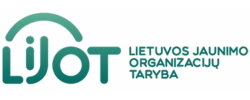TYA is taking part in an international partnership with universities from Italy, France, Romania and Lihtuania. The international research project INSIDE will deliver new knowledge and tools to support European youth in identity-related challenges.
Within the project a group of youth researchers from five European universities and TYA as a partner from NGO sector is working together in developing new evidence and tools on the topic of youth identity. Current-day Europe presents numerous challenges to youth identity development, which may particularly hinder development of youth from vulnerable backgrounds. Persistent socio-economic inequalities, socio-cultural fragmentation and general lack of tolerance in European societies contribute to experiences of stigmatization and exclusion based on core aspects of youth identities, such as ethnicity, religion, social class, gender, sexual orientation or ability. Current geopolitical situation with high levels of refugees and international migration to and within Europe is creating a context in which challenges for identity-related youth transitions become even more salient.
In response to these challenges, the partnership INSIDE (Innovative Curriculum for Strong Identities in Diverse Europe) will generate new research knowledge and develop innovative education tools for up-to-date university and non-formal teaching on youth identity. In particular, the project will deliver: 1) a course curriculum for an intensive program on youth identity development, 2) a compendium of articles on identity-related research and applied work with youth, and 3) an open educational resource on support to youth facing identity-related challenges.
The project is implemented by Mykolas Romeris University (coordinator, Lithuania) in partnership with University of Bologna (Italy), Babeș-Bolyai University (Romania), University of Bordeaux (France), Cardinal Wyszyński University in Warsaw (Poland) and Tolerant Youth Association (Lithuania). The project is coordinated by professor Saulė Raižienė and assoc. professor Rasa Erentaitė, both from the Institute of Psychology at MRU. The project is funded by the Erasmus+ KA2 Strategic Partnership.
Contact person:
Eglė Tamulionytė, egle@tja.lt.
























